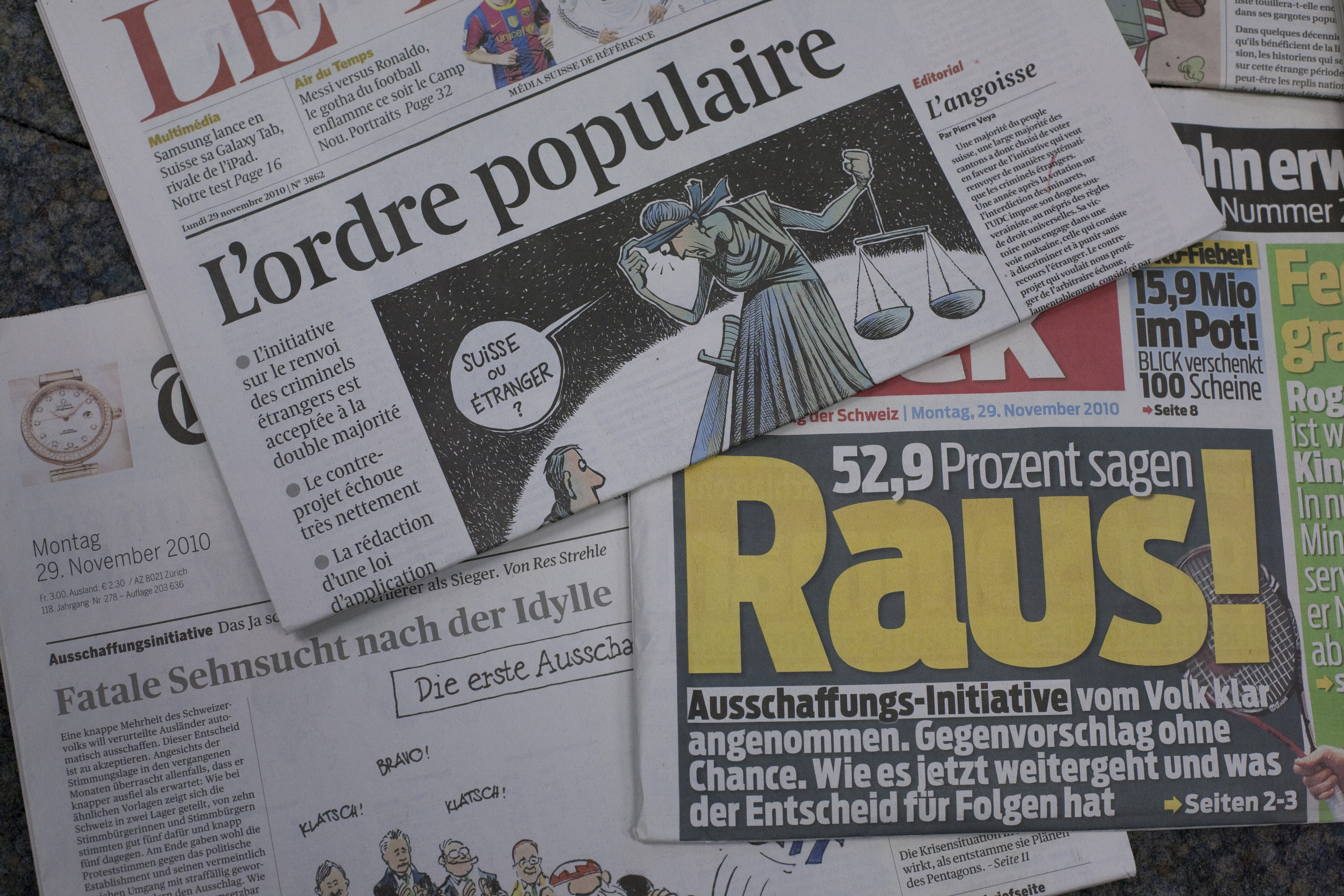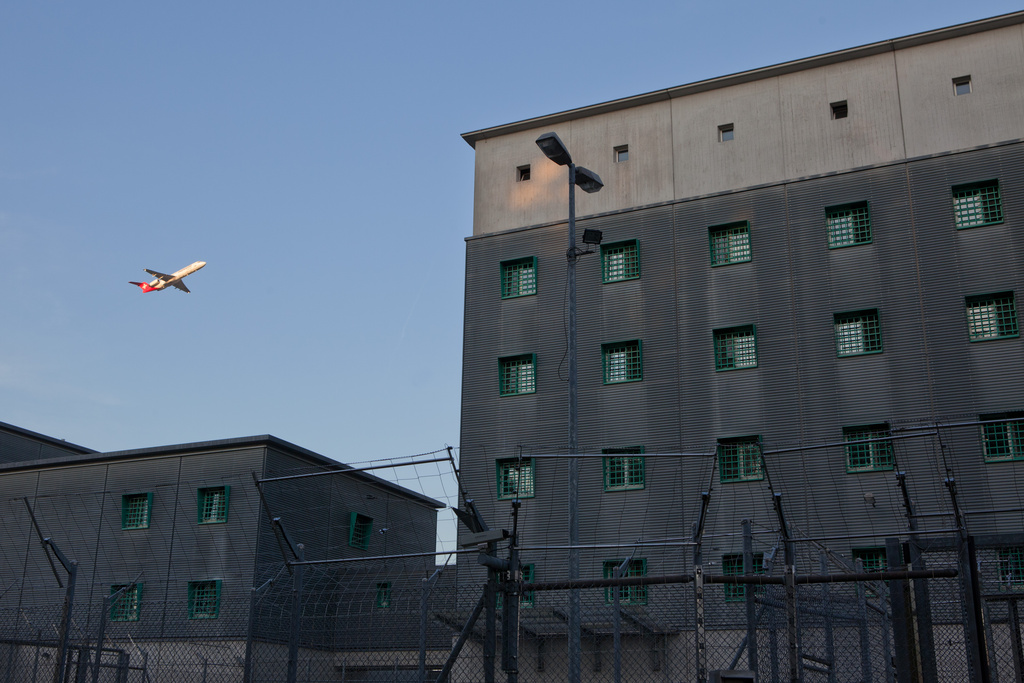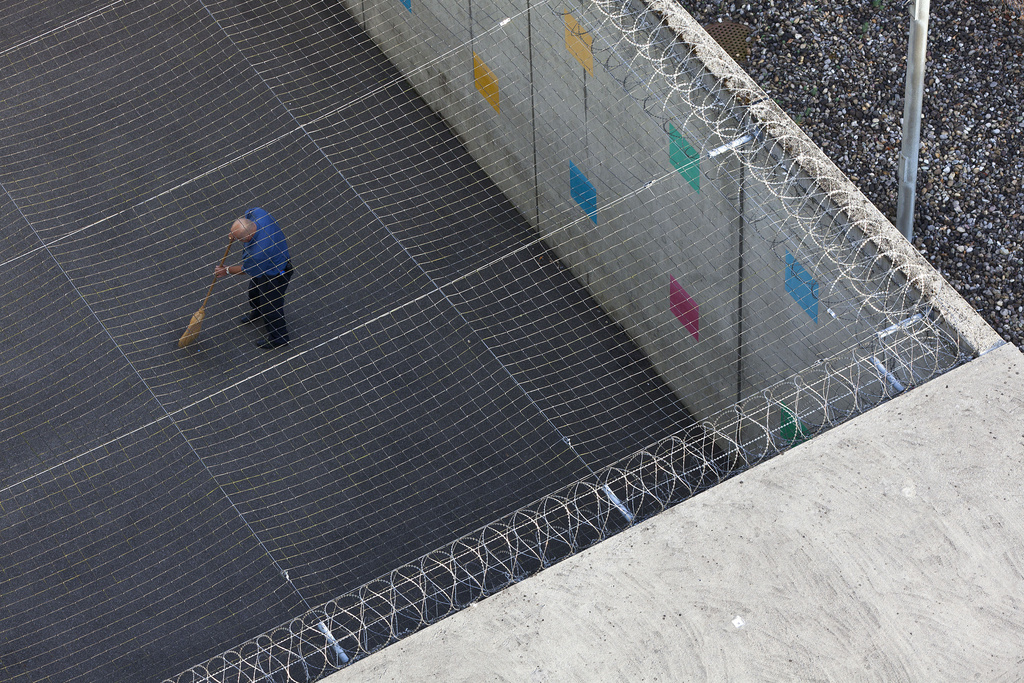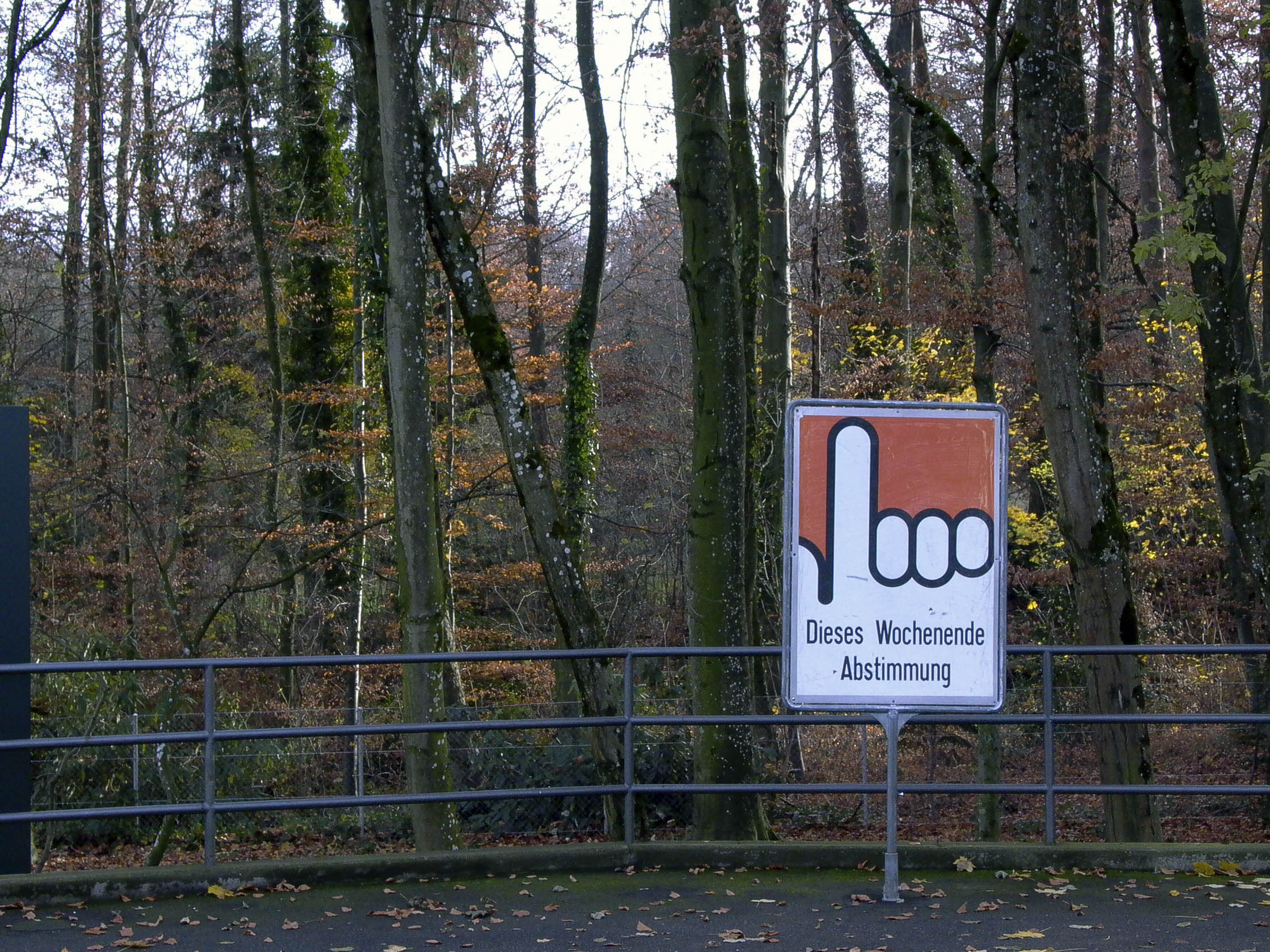Media diagnose Swiss identity crisis

Newspapers see the acceptance of an initiative to deport criminal foreigners as a sign of popular uncertainty facing a rapidly changing social landscape.
The 52.9 per cent of voters who backed a proposal from the rightwing Swiss People’s Party had given in to a “fatal yearning for paradise”, according to the Tages-Anzeiger.
The Zurich-based paper added it was an illusion to think that simple solutions could bring back a former idyll that many people believe to have disappeared.
Switzerland would pay a high price, it concluded. “The image of a cosmopolitan, tolerant and internationally engaged country has taken a further battering.”
As did shop windows. Following the latest sign of growing hostility to immigration in Switzerland, opponents of the initiative marched through Zurich on Sunday, smashing up shop windows. In the capital Bern, there were about 500 protesters, some of whom threw snowballs and bottles at police in front of parliament.
“The bad mood hits foreigners but not the rich,” was the headline in Der Bund of Bern. The yes to the People’s Party’s initiative showed that “questions of Swiss identity and culture, triggered by rapidly growing social change and migration, bother Swiss people like virtually nothing else”.
The Bernese paper observed that in the same vote on Sunday a proposal by the left that would have imposed a minimum cantonal tax on the very rich was rejected by 58.5 per cent of voters.
The Neue Zürcher Zeitung warned that the yes to the deportation initiative was probably only a “symbolic gesture” against foreign criminals with which the population expressed its dissatisfaction. The implementation of the proposal was “full of factual and political areas of potential conflict”.
“People’s dictatorship”
The Aargauer Zeitung didn’t beat about the bush: “After the ban on construction of minarets [in November 2009], the acceptance of the deportation initiative was the second operational accident involving direct democracy within a year”.
The Südostschweiz saw Switzerland on the path to a “people’s dictatorship”. “Once again the People’s Party is the only one that can call itself a party of the people,” it said. “Its brute understanding of direct democracy – whereby voters decide absolutely everything without exception – has asserted itself.”
It added: “There are no longer any limits.”
The Berner Zeitung on the other hand saw positive aspects to the result, which represented a “deep and widespread distrust towards the government, whose behaviour is no longer considered fair and whose judges are no longer considered in touch with the world”.
It concluded: “In this crisis of confidence, parliament would do well to implement the wishes of the initiative “quickly and without gimmicks”.
Election prospects
Editorialists agree that the People’s Party is now in an excellent position for the general elections in 2011.
“The party had achieved a long-lasting victory,” said the St Galler Tagblatt.
The centre-right parties – the Christian Democrats and the Radicals – were “pulverised” at the weekend, reckoned the Basler Zeitung.
“The two old middle-class parties weren’t even able to muster a majority in favour of the counter-proposal,” it wrote, adding that they might be part of the government, “but without the Social Democrats and the People’s Party they could no longer get anything done”.
Impotence of opposition
For newspapers in the French-speaking part of the country – where the initiative was noticeably less popular – the result proved one thing above all: the impotence of other parties against the People’s Party.
“The People’s Party marches on, because there’s no opposition,” said the Tribune de Genève. “It is the first to recognise a malaise among voters – and the first to offer a solution.” The others are simply reactive and without a plan, it added.
The Quotidien Jurassien also pointed its finger at the absence of strategy. The parties of the centre and the left were “incapable of agreeing to support the counter-proposal”, it said, hoping that Sunday’s “warning shot” would wake up Swiss politicians.
La Liberté in Fribourg also criticised the left and centre parties for denying the reality that a minority of foreigners carry out criminal acts. “Letting this piece of land lie fallow – despite growing popular anger – was to offer space to poisonous plants”.
Le Nouvelliste in Sion said the People’s Party was the only party to have “integrated the realities of the century” – namely a middle class that wanted to protect its privileges. If the other parties didn’t do something, it warned, “a boulevard would open for the People’s Party regarding the elections in 2011”.
Alarm bells
For Le Temps in Geneva, voters’ fears about the consequences of immigration were “legitimate but exploited by the People’s Party”. It was becoming impossible for other parties to do anything – “populism is knocking reason unconscious.”
This impotence also highlighted the problems of political funding, said Le Matin. “Parliament must decide on ways to fix the rules of the game.”
French-speaking editorialists also heard alarm bells for democracy.
“How far will Switzerland go in the decline of the state of law and discrimination established in fundamental laws?” wondered La Liberté.
The victory for the People’s Party was serious “in the sense that it reveals that citizens aren’t aware of the limits involved when exercising civil rights,” said Le Temps.
“The initiative wouldn’t have passed without racist fire starters and the financial and editorial commitment of ‘armchair perpetrators’,” said Germany’s Tageszeitung online.
Die Welt, also in Germany, judged that the lack of self-responsibility shown by voters towards principles dealing with the rule of law “was just as regrettable as the outcome of the vote”.
“Xenophobia in Switzerland,” said Le Monde in Paris. “The Swiss have responded, despite any thought for human rights, to the xenophobic campaign of the People’s Party.”
According to Die Presse in Vienna, “the growing anti-foreigner attitude in Switzerland – which was not only against Africans and Eastern Europeans but also Germans and Austrians – reflected a certain schizophrenia: on the one hand they want foreign murderers, robbers and drug dealers to be booted out, while violent dictators, mafiosi and dodgy businessmen are greeted with a ‘grüezi’ [hello]. It is this, basically pragmatic, cherry-picking mentality that ultimately makes this initiative so brazen”.
The Italian newspaper Il Giornale, controlled by the family of prime minister Silvio Berlusconi said Italy should follow Switzerland’s lead by introducing a similar law.
The leftwing newspaper El Pais in Spain highlighted the difference in the way Switzerland’s German and French speakers voted.
Initiative:
Yes 52.9%
No 47.1%
Counter-proposal:
Yes 45.8%
No 54.2%
Turnout: 53%
As part of extended trials with e-voting a limited number of citizens from 12 cantons, including registered Swiss expatriates, took part in the ballot over the internet.

In compliance with the JTI standards
More: SWI swissinfo.ch certified by the Journalism Trust Initiative






You can find an overview of ongoing debates with our journalists here. Please join us!
If you want to start a conversation about a topic raised in this article or want to report factual errors, email us at english@swissinfo.ch.